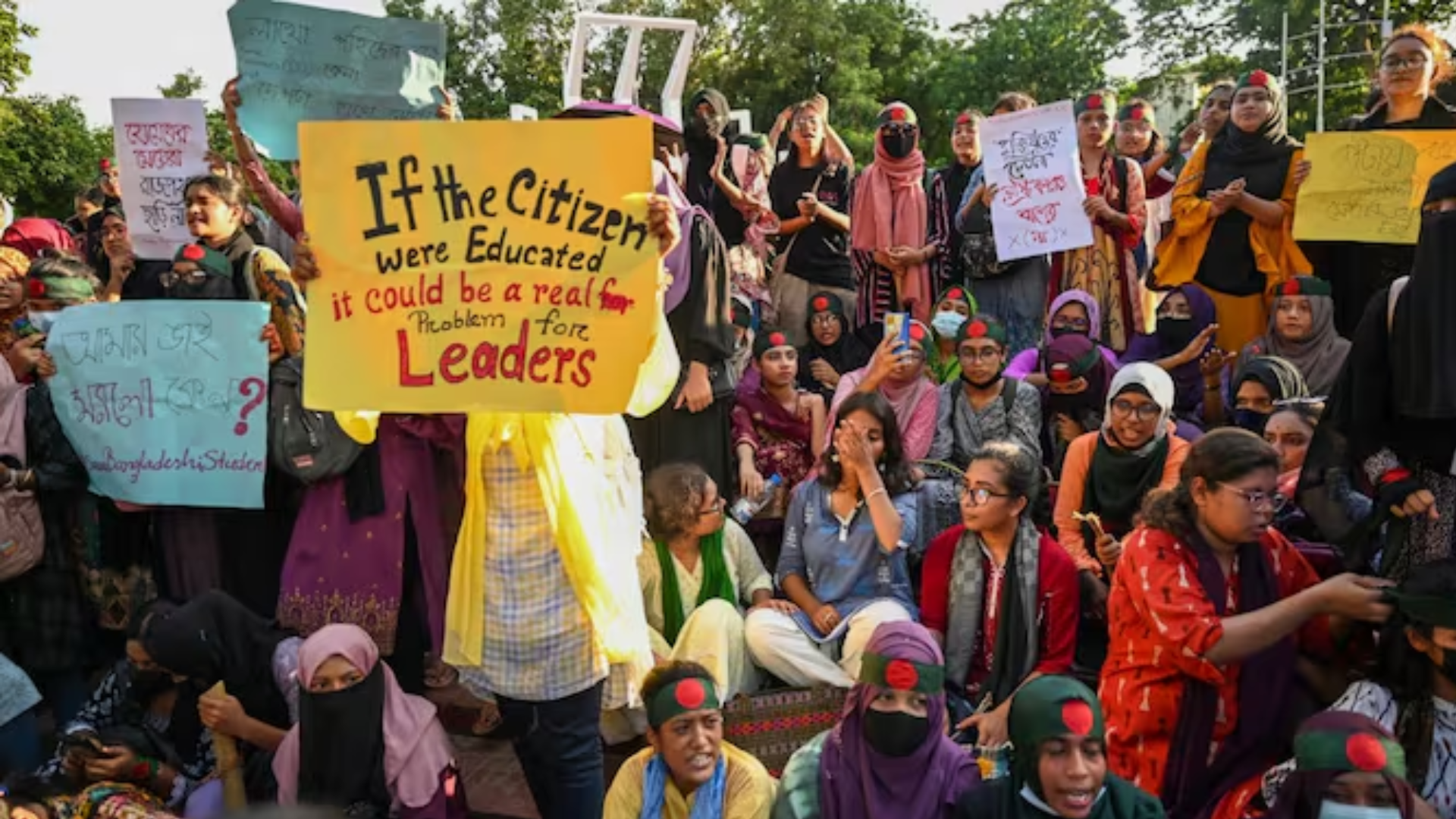The Asian Forum for Human Rights and Development (FORUM-ASIA) and Front Line Defenders are deeply concerned over the violence and excessive use of force and firearms by security forces against student human rights defenders and university students protesting against Bangladesh’s quota system in government jobs.
Reports indicate that thousands are injured and at least 174 people have been killed, though official figures for deaths are yet to be shared by authorities.
The country is under a curfew, with heavy military deployment and armed soldiers patrolling cities. A nationwide internet and mobile data blackout has been imposed, severely restricting the flow of information.
On 21 July 2024, following the nationwide protests, the Supreme Court scrapped most quotas and directed that 93 per cent of government jobs should be based on merit.
Student-led anti-quota protests
Prior to the Supreme Court verdict, 30 per cent of first and second-class government jobs in Bangladesh were reserved for the children and grandchildren of ‘freedom fighters’ who fought for the country’s independence from Pakistan in 1971.
The quota system was abolished in 2018 following widespread protests. However, on 5 June 2024, it was reinstated by the Bangladesh High Court. In response to the reinstatement, protests erupted across Bangladeshi universities, with students demanding the cancellation of the High Court order and calling the quota system discriminatory.
Protestors, including student human rights defenders, argued that the quota system benefits supporters of the ruling Awami League party and Prime Minister Sheikh Hasina, who was re-elected amid a crackdown on the political opposition, an election boycott, and low voter turnout.
Students demanded a shift towards a merit-based system while retaining quotas for ethnic minorities and persons with disabilities.
Violence against protestors and journalists, detention of human rights defenders
The protests broke out on 1 July 2024, quickly spreading across university campuses.
Members of the Bangladesh Chhatra League (BCL)—the Awami League’s student wing—reportedly attacked protestors with sticks, bricks, crude bombs, and iron rods with impunity.
The violent attacks were caught on camera, showing harrowing images of stick-wielding men assaulting women student activists.
A group of Awami League supporters also stormed the emergency department of Dhaka Medical College Hospital on 15 July 2024, where injured students were being treated, disrupting medical services and causing widespread panic among medical staff and patients.
Meanwhile, the police reportedly used shotgun pellets, teargas shells, and sound grenades against protestors. Authorities had allegedly issued ‘shoot-on-sight’ orders to security forces to quell the unrest.
Journalists covering the protests have also been injured. Hasan Mehdi, a reporter for Dhaka Times, was killed while covering the clashes between police forces and students.
Over 2580 people have been detained throughout protests, including opposition leaders, students, and student human rights defenders like Akhtar Hossain, the former leader of Dhaka University Central Students’ Union.
Digital crackdown
Since 18 July 2024, Bangladesh has been without internet and mobile services, cutting off communication nationwide. Limited connectivity was restored on the evening of July 23, 2024, with priority given to banks, firms, and media outlets.
The government has a history of using internet shutdowns under the pretext of quelling violence. However, this tactic is primarily a means to curb dissent. It is a highly disproportionate and ineffective measure for addressing the unrest.
Students have been threatened with suspension and expulsion for simply participating in the protests. College authorities have allegedly instructed students to avoid sharing information on social media.
These actions violate students’ right to protest and freedom of peaceful assembly, association, and expression.
Call to action
FORUM-ASIA and FLD urge the Government of Bangladesh to uphold people’s fundamental rights and freedoms, particularly that of peaceful assembly, association, and expression.
The violent repression of student protests in Bangladesh undermines the country’s constitutional protections, including Article 37 which guarantees the right to peaceful assembly. Additionally, it violates Bangladesh’s international obligations under the International Covenant on Civil and Political Rights, to which the country is a state party.
We urge the government to safeguard protestors and student human rights defenders from threats, reprisals, and violence. Likewise, the government must respect people’s right to peaceful protest. The state must refrain from sponsoring or facilitating any attacks against protestors and must ensure that all state bodies, including the police and paramilitary forces, exercise utmost restraint.
The use of excessive force and firearms, including shooting at unarmed protestors, blatantly disregards the right to life. Internet shutdowns and social media restrictions infringe upon people’s freedom of expression and right to access information.
We call for a prompt, independent, and impartial investigation into these violations. Perpetrators should be held to account. Victims and their families should be afforded reparations.
For the PDF version of this statement, click here




